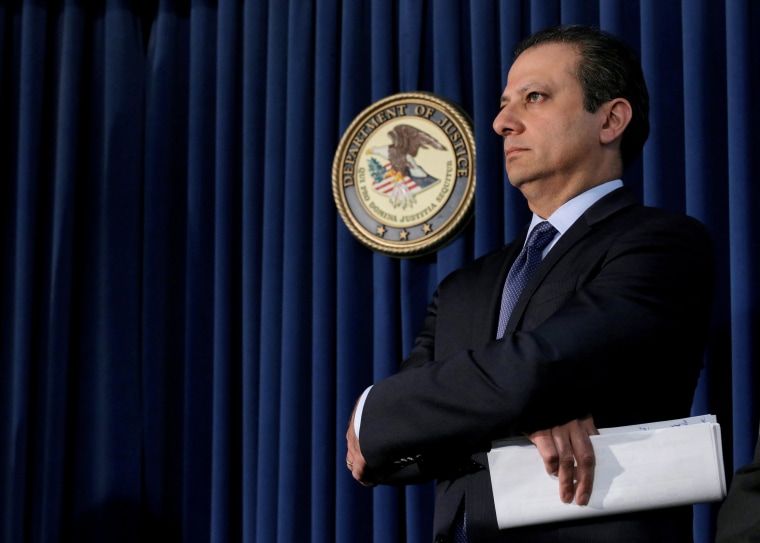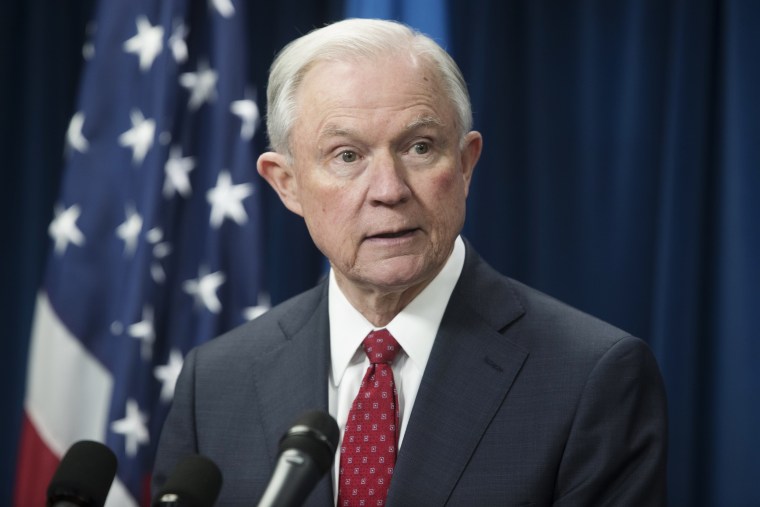The Trump administration acted abruptly Friday to force out the remaining U.S. attorneys who had not already stepped down.
All 93 U.S. attorneys — the top federal prosecutors in the states — are political appointees. A total of 47 had already stepped down. Some states, divided into separate districts, have more than one.
But mid-day Friday, the remaining 46 were told to submit their letters of resignation immediately. The move was announced by the Justice Department, and many of the prosecutors first learned of it when they received calls from reporters.
A Justice Department statement said the action was taken "as was the case in prior transitions."
"Until the new U.S. attorneys are confirmed, the dedicated career prosecutors in our U.S. attorney's offices will continue the great work of the department in investigating, prosecuting, and deterring the most violent offenders," the statement said.
In 1993, Attorney General Janet Reno demanded the resignations of all 93 U.S. attorneys in the early days of the Clinton administration. A department official says current Attorney General Jeff Sessions still has the letter Reno sent him.

Still, Friday's move came as a surprise to many of the federal prosecutors, including Preet Bharara, the U.S. attorney in Manhattan. After meeting with President Donald Trump in late November, Bharara said he was asked to stay on and agreed to do so.
A White House official confirmed Friday that the administration intended to accept Bharara's letter of resignation.
Sen. Dianne Feinstein, the ranking Democrat on the Senate Judiciary Committee, condemned the move. "I'm very concerned about the effect of this sudden and unexpected decision on federal law enforcement," she said in a statement.
Feinstein said Vice President Mike Pence and White House Counsel Donald McGahn assured her in January that the transition among federal prosecutors would be done in an orderly fashion to preserve continuity.
"Clearly this is not the case," Feinstein said.
Senate Minority Leader Chuck Schumer, a Democrat from New York, said the move contradicts what he was told by Trump about Bharara. "The President initiated a call to me in November and assured me he wanted Mr. Bharara to continue to serve as U.S. Attorney for the Southern District," Schumer said in a statement.
"By asking for the immediate resignation of every remaining U.S. Attorney before their replacements have been confirmed or even nominated, the President is interrupting ongoing cases and investigations and hindering the administration of justice," Schumer said.
The firings follow an appeal from Fox News commentator Sean Hannity who called for a "purge" of holdover political appointees and specifically cited the move by Reno in 1993. Some Justice Department officials said they believe Friday's firings were in part the result of Hannity's commentary.

